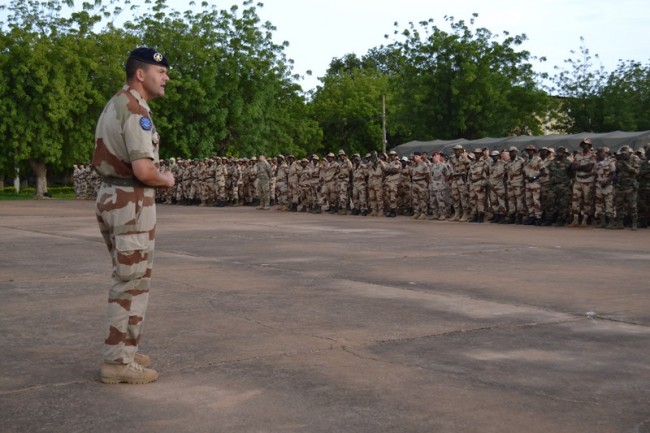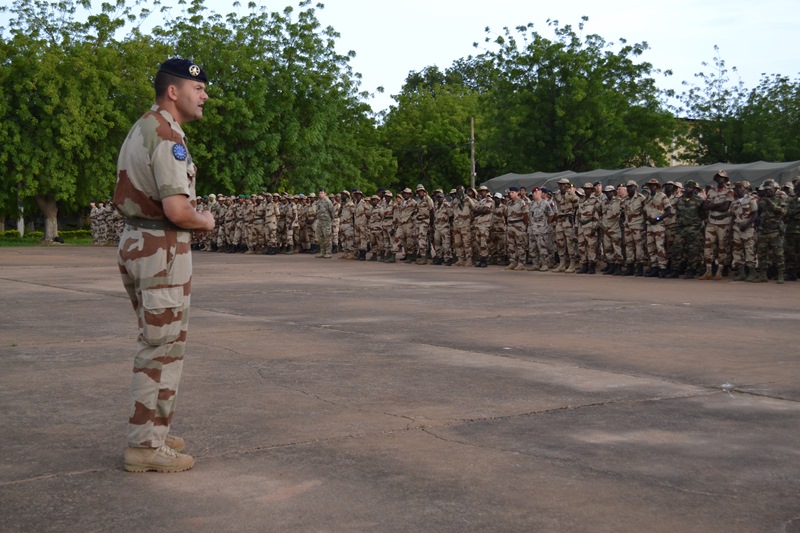CSDP, Defense Europe and European defence… how to find your way around
(BRUSSELS2) There is often confusion between European defence, European defense and the (European) common security and defense policy (CSDP).

What are we talking about ?
La european defense generally corresponds to the way in which countries organize themselves to ensure their defence, in the territorial sense of the term, either within an organization (NATO, European Union), or through multilateral consultation.
Through " Europe of defense we generally mean the organization of a common defense at European Union level. This term has been widely used. And everyone puts their hopes and fantasies into it. Some go so far as to evoke a European army (which is, for the moment, at best a fad). Others seeing only one motto political, even theoretical.
La Common (European) Security and Defense Policy (PeSDC) is a precise concept. Today, as defined by the Treaties, the CSDP is not a European defense policy, in the territorial sense of the term. Moreover, it is only intended to be exercised outside the European Union and not on EU territory. It is based, above all, on a crisis management policy, with the establishment of (civilian) missions or (military) operations aimed at maintaining stability and peace in various countries of the world, missions whose the philosophy is similar to those put in place at the international level by the UN Department of Peacekeeping Operations.
These missions are different from traditional peacekeeping missions, even if they can sometimes overlap. They cover the strengthening of the rule of law, observation, assistance to the security forces. They take place in neighboring countries whose stability is vital for the countries of the European Union, either because they are destined to integrate the European Union (Balkans), or because they adjoin the borders, where a crisis has an economic and human impact (immigration, for example) on nearby European countries. But they can also take place in distant countries where Europe nevertheless considers it has interests (Congo, Mali, Indian Ocean, etc.).
A capacity and industrial policy in its infancy
The operational CSDP policy is coupled with capability concepts, in order to have the means to carry out these missions. This in itself can thus contribute to strengthening European industry. But no automatic link is made between the two objectives: the establishment of the capacities necessary to carry out CSDP missions can be done without necessarily developing an industrial capacity but simply by having recourse to the equipment available on the world market (American notably).
At the same time as this policy has gradually developed in either an intergovernmental or community framework, a policy aimed at structuring defense markets. It is not (or at least not yet) an industrial policy but a dual-purpose regulatory policy. On the one hand, it is necessary to ensure that national defense structures can adapt to new civil regulatory data (single sky, data protection, etc.) and/or ensure that their specificity is preserved. On the other hand, it is a matter of harmonizing different rules (public procurement, export of goods, etc.) existing within the European Union, bearing in mind precisely the specificity of this market. Work carried out mainly by the European Commission with the European Defense Agency.
Related policies
To this must be added other policies, which are put in place at community level, and which concern security:
- the creation of a “civil protection” competence to deal with natural or technological disasters or the protection of “critical infrastructures”;
- consultation on terrorism policy;
- the development of a policy to fight against immigration, with the Frontex agency, which is in an embryonic phase;
- certain industrial-capacity projects, such as the Galileo geolocation system and GMES satellite operation, which are primarily civilian but can contribute to these “civil defense” or even military policies.
If we combine all these instruments, we arrive indeed at a European defense policy which has not yet found all its coherence and all its political translation but presents significant development possibilities.
(Nicolas Gros-Verheyde)


